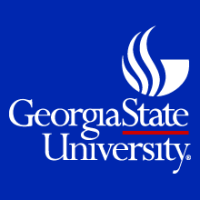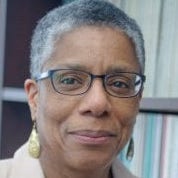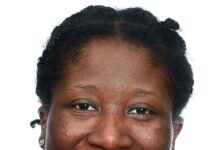 Georgia State University’s College of Arts & Sciences has established the Center for Studies on Africa and its Diaspora, a multidisciplinary hub for the exchange of cultural, scientific, economic, policy and humanities knowledge within the university, and with local and global communities and collaborators. The center will support research and academic initiatives, artistic efforts, and public programming, including exhibits, lectures, and conferences, and advance policy proposals that target issues of concern to the African diaspora across the university and the broader community.
Georgia State University’s College of Arts & Sciences has established the Center for Studies on Africa and its Diaspora, a multidisciplinary hub for the exchange of cultural, scientific, economic, policy and humanities knowledge within the university, and with local and global communities and collaborators. The center will support research and academic initiatives, artistic efforts, and public programming, including exhibits, lectures, and conferences, and advance policy proposals that target issues of concern to the African diaspora across the university and the broader community.
Georgia State University in Atlanta enrolls more than 27,000 undergraduate students and more than 7,000 graduate students, according to the most recent data supplied to the U.S. Department of Education. African Americans make up 41 percent of the undergraduate student body.
 The center is led by two co-directors. Jennie Ward-Robinson is special adviser to the dean of the College of Arts & Sciences and an expert in global health and multilateral government affairs. She is a graduate of the University of Houston-Clear Lake. She earned a master’s degree at Kansas State University and a Ph.D. at the University of Wisconsin-Madison. She joined the staff at the university earlier this year.
The center is led by two co-directors. Jennie Ward-Robinson is special adviser to the dean of the College of Arts & Sciences and an expert in global health and multilateral government affairs. She is a graduate of the University of Houston-Clear Lake. She earned a master’s degree at Kansas State University and a Ph.D. at the University of Wisconsin-Madison. She joined the staff at the university earlier this year.
 The other co-director is Elizabeth West, professor of English and executive director of the South Atlantic Modern Language Association. Her teaching and scholarship focus on spirituality and gender in early African American and women’s literature, and African diasporic literatures of the Atlantic world. Professor West earned a Ph.D. in English with a certificate in women’s studies from Emory University in Atlanta.
The other co-director is Elizabeth West, professor of English and executive director of the South Atlantic Modern Language Association. Her teaching and scholarship focus on spirituality and gender in early African American and women’s literature, and African diasporic literatures of the Atlantic world. Professor West earned a Ph.D. in English with a certificate in women’s studies from Emory University in Atlanta.
“The need for a center of this focus and aim at Georgia State has been recognized by faculty and students for some time,” Dr. Ward-Robinson and Dr. West said in a joint statement. “We are honored to be part of the collective body that worked to bring this moment to fruition. We look forward to the work ahead and the impact that the center will make in and beyond our institution’s boundaries.”











